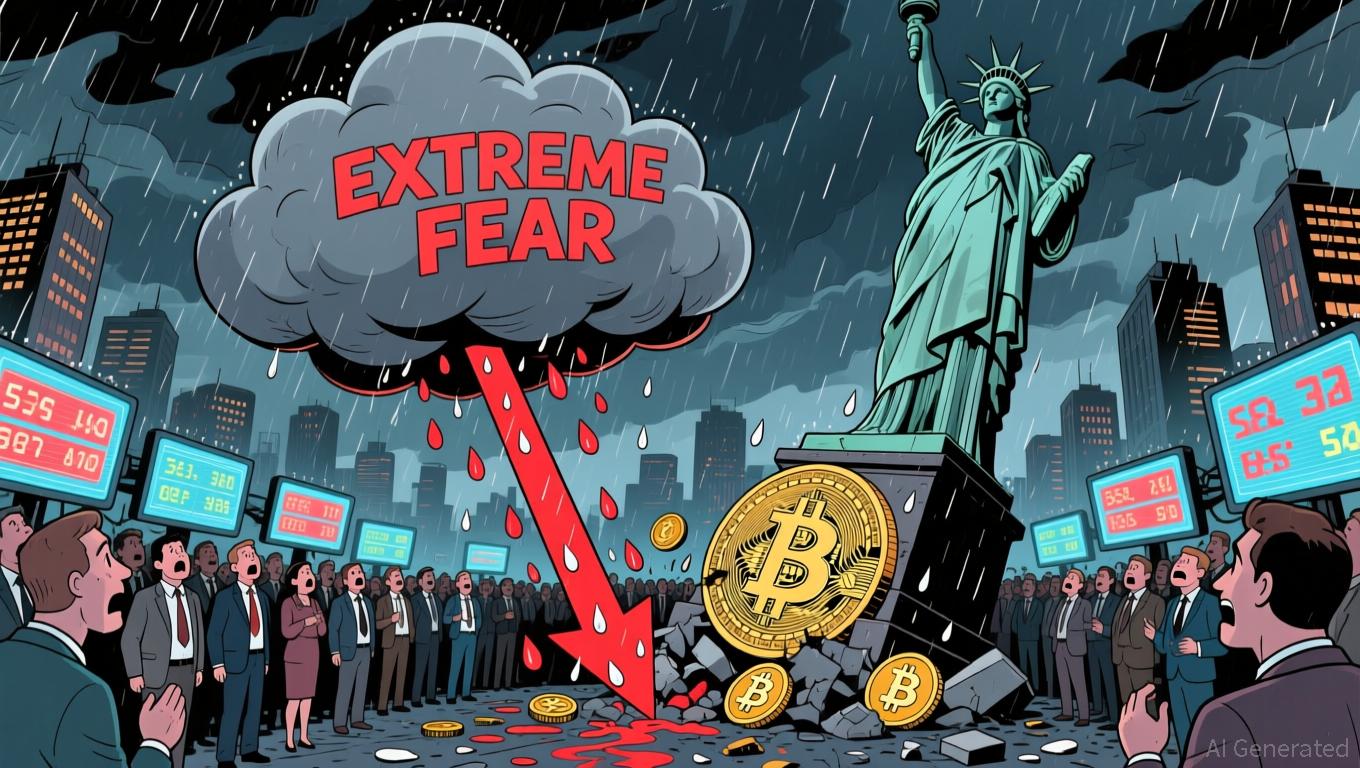Vitalik Buterin Introduces a Novel ZK Research Initiative and Its Potential Impact on Blockchain Scalability
- Vitalik Buterin proposes deprecating Ethereum's modexp precompile to boost ZK proof efficiency, accepting higher gas costs for long-term scalability. - ZKsync's Atlas upgrade achieves 15,000 TPS with open-source liquidity tools, attracting enterprises through privacy and interoperability. - ZK Rollups outperform Optimistic Rollups in security and finality, gaining traction in finance despite higher computational costs. - ZK-based solutions align with regulatory demands, with ZKsync's deflationary tokenom
Technical Breakthroughs: Phasing Out the Modexp Precompile
Buterin’s suggestion addresses a major bottleneck in Ethereum’s design. The modexp precompile, originally intended to speed up modular exponentiation, has unintentionally become an obstacle for ZK-EVM solutions.

ZKsync’s Atlas Update: Demonstrating Enterprise Integration
The Atlas upgrade for ZKsync, released in 2025, showcases how ZK-based technologies can fulfill enterprise requirements. This update
ZK Versus Optimistic Rollups: Comparing Two Approaches
Optimistic Rollups are still favored for their straightforward deployment and compatibility with existing Ethereum contracts, but ZK-based platforms are gaining ground in scenarios that demand instant finality and privacy. A study by ResearchGate points out the main distinctions: Optimistic Rollups use a challenge period to validate transactions, which can delay fund availability, while ZK Rollups rely on cryptographic proofs for immediate finality. This makes ZK Rollups especially suitable for financial operations and identity checks, where both speed and security are essential. However, the higher computational demands of ZK proof generation continue to limit their broader use.
Regulation and Enterprise Uptake: ZK’s Strategic Advantage
As regulatory oversight intensifies, ZK-based solutions are uniquely equipped to address compliance needs. ZKsync’s appeal to institutions has grown as its token shifted from a governance focus to a value-driven model, matching corporate preferences for stable tokenomics.
Investment Perspective: The Enduring Promise of ZK
For those investing in blockchain, the intersection of technical progress, institutional interest, and regulatory fit creates a strong case. ZK-powered Layer 2 networks are
Final Thoughts
Vitalik Buterin’s ZK research initiative is more than a minor technical change—it represents a strategic shift in Ethereum’s scaling direction. By tackling outdated inefficiencies and backing ZK-based platforms like ZKsync, the Ethereum community is paving the way for a blockchain that is scalable, secure, and ready for enterprise use. For investors, the message is unmistakable: ZK-based Layer 2 solutions are not only the future of Ethereum but also a key asset class in the expanding blockchain industry.
Disclaimer: The content of this article solely reflects the author's opinion and does not represent the platform in any capacity. This article is not intended to serve as a reference for making investment decisions.
You may also like
Bitcoin News Today: Bitcoin Faces $62K Drop Threat Amid Fed's Data Silence Predicament
- Bitcoin faces $62K crash risk amid Fed uncertainty caused by U.S. government shutdown's "data blackout" disrupting inflation/labor data. - Post-Nov 13 reopening saw BTC rebound above $102K, but markets remain fragile with 20% decline from October peak despite $140B ETF growth. - Fed rate cut odds dropped to 52% for December, creating volatility as institutions like Harvard Endowment invest $443M in Bitcoin ETFs. - U.S. miners struggle with 37.75% global hashrate share amid lack of federal incentives, con

Bitcoin Updates Now: Crypto Faces a Standstill as Market Anxiety Meets Harvard’s Confident Bitcoin Investment
- Alternative Data's Fear & Greed Index hit record low 10 on Nov 16, signaling extreme crypto market fear and frozen investor sentiment. - Bitcoin fell 5% to $96,000 while CD20 lost 5.8% as profit-taking, liquidations, and liquidity declines accelerated selloffs. - Rising U.S. Treasury yields and central bank uncertainty worsened losses, with Nansen noting "perfect storm" of macro risks and institutional outflows. - Harvard's $443M IBIT ETF investment contrasts current bearishness, highlighting diverging i

XRP News Today: XRP ETF Achieves Historic Debut Despite Crypto Market Downturn
- Canary XRP ETF (XRPC) set 2025's debut record with $58.6M trading volume, surpassing Bitwise's Solana ETF . - XRPC attracted $245M inflows despite XRP's 5.2% price drop, highlighting institutional demand vs. spot market dynamics. - SEC's 2025 Ripple settlement enabled first U.S. spot XRP ETF, signaling regulatory clarity after 5-year legal battle. - Analysts predict $8B in potential inflows for XRPC, with XRP price targets up to $10 in 18 months. - XRPC's success reflects maturing crypto ETF market, with
BCH Shares Fell by 0.3% Amid Increasing Institutional Holdings and Lower-than-Expected Earnings
- BCH shares fell 0.3% in 24 hours amid mixed institutional buying and earnings shortfalls, despite a 185.3% stake increase by Campbell & CO to 26,095 shares. - Q3 earnings of $0.60 (vs. $0.62 expected) and revenue of $675. 3M (vs. $832M forecast) highlighted underperformance, though 23.25% ROE and 32.87% net margin signaled strong profitability. - Analysts upgraded BCH to "Moderate Buy" with $34 average target, citing Goldman Sachs ($35) and JPMorgan ($33) price hikes, reflecting cautious optimism about l